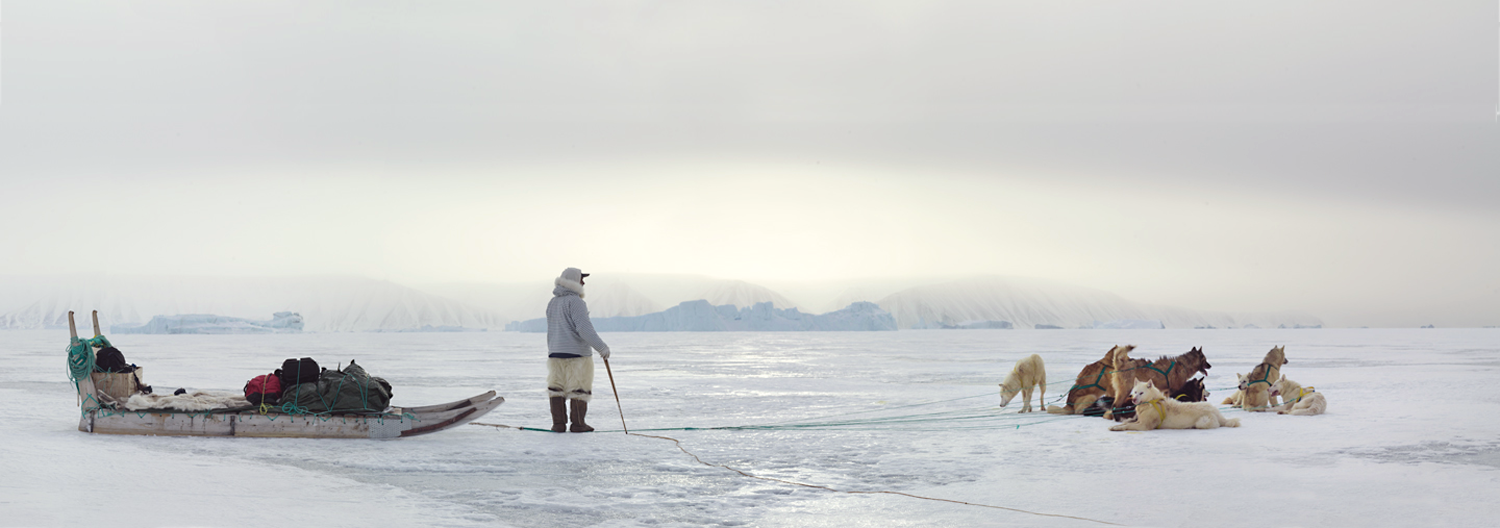The concept of SILA – a term that encompasses weather, balance, consciousness – frames a story in the world’s northernmost inhabited village. Situated above the Arctic Circle in Greenland, Inuit subsistence hunters and a team of polar scientists bear witness to their changing environment. As international researchers on Greenland’s Inland Ice Cap track the effects and far-reaching consequences of the warming Arctic, these drastic changes in weather patterns are also spelling an end to the Inuit’s centuries-old way of surviving off the food their surrounding provides. With a close-up view into these communities, the film puts human faces on a highly-politicized issue. The Greenlandic idea that weather acts as the conscience of nature informs a unique story at the frontlines of climate change.
In the frozen and seemingly ancient landscape of the Greenland, climate has defined the lives of the Inuit for centuries. But since the 90s, the people there have witnessed warm water currents reaching their frozen fjords. Weather patterns began to change and different fish were entering their waters. “The sea ice”, says Qillaq Avike, “is only half as thick as it was twenty years ago and the hunting seasons have become shorter with every year.” With the thinning of sea ice, a strict hunting quota system is enforced, which reduces his food to barely enough to feed the family and his dogs. He fears the Greenland’s centuries-long traditions as well as their identity will eventually be lost to the rapidly disappearing sea ice.
On Greenland’s Ice Cap, Konrad Steffen, a full-bearded and charismatic climatologist, introduces his research station, Swiss Camp. He offers an intimate and personal glimpse into the small and enclosed community of 7 researchers. Consisting of two work huts and seven sleeping tents, the camp is a cluster of small dots amidst an endless white and frozen ice desert.
In Greenland’s capital Nuuk, Aqqaluk Lynge, a human rights leader and politician, gives testimony to the impacts of globalization on his indigenous culture. He describes the economic challenges Greenland is facing, while his nation aspires to become independent from the Danish Kingdom. As Chair of the Inuit Circumpolar Council (ICC), Lynge’s direct and articulate statements also defines the strong connection of his culture to the land, a culture that is fighting for its survival.
SILA and the Gatekeepers humanizes the impact of the warming Arctic and brings attention to the interconnectedness between these small Arctic communities and the larger global society. It presents a small part of the earth as a sample of the challenges we face as a global community in an ecologically unstable and increasingly unsustainable world.
Participants
Aqqaluk Lynge – former President of the Inuit Circumpolar Council [ICC]
Pauline Kristiansen – Seamstress / Teacher, Granddaughter of Explorer John E. Peary
Konrad Steffen – Glaciologist, Director WSL, Professor Climate and Cryosphere ETH Zurich
Qillaq Danielsen – Subsistence Hunter
Peter Avike – Subsistence Hunter
Tukummeq Hendriksen – Community Administrator
Ikuo Oshima – Subsistence Hunter
José Rial – Professor of Geophysics and Glaciology, University of North Carolina
James White – Professor of Geological Sciences, University of Colorado Boulder
Jorgen Chemnitz – Journalist, Nuuk Greenland

